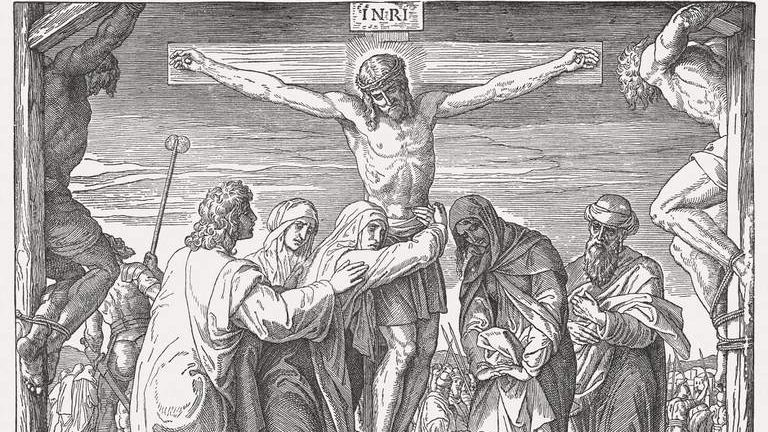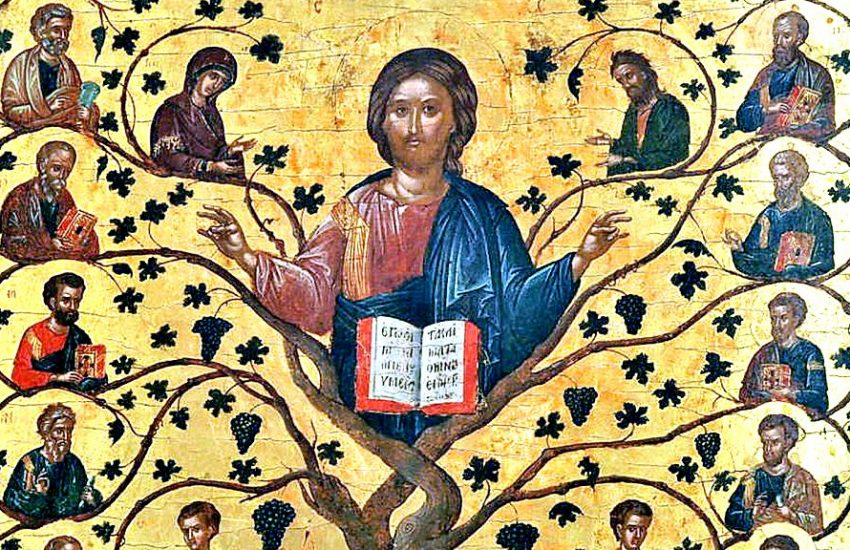Forgiveness & Reconciliation
24th Sunday in Ordinary Time (Year A)
“Forgive your neighbor’s injustice; then when you pray, your own sins will be forgiven.”
Sirach 28:2
Scripture is full of injunctions to forgive those who offend us. We hear a few of them in this Sunday’s lectionary readings. Sirach tells us that God will forgive those who forgive others, prefiguring how Jesus teaches us to pray that God “forgive us our trespasses, as we forgive those who trespass against us” (Mt 6:12).
In Matthew’s gospel, when Peter asks Jesus whether we must forgive our neighbor as many as seven times (seven being the symbolic number of perfection in scripture), Jesus responds with, “not seven times but seventy-seven times,” multiplying the number to indicate the limitless forgiveness he expects of us (Mt 18:22).
Jesus then gives the parable of the unforgiving servant who is forgiven a very great debt by his master but later refuses to forgive his fellow servant who owes him a much smaller sum. When the master hears of this, he has the man arrested and thrown into debtors prison. Jesus ends by warning: “So will my heavenly Father do to you, unless each of you forgives your brother from your heart” (Mt 18:35).
The wisdom of the world tells us that forgiveness has to be earned. But forgiveness is an act of love, and Christ teaches that it is not dependent upon the other person apologizing or making recompense. Forgiveness is a choice you can make and refusing to make that choice only does harm to yourself. It makes you a less loving person, while choosing to forgive makes you more like God. Remember the age old maxim, “To err is human, to forgive is divine.” Forgiveness makes you holy.
But isn’t there a double standard here? Don’t we need to repent of our sins and go to confession to be forgiven by God? If God won’t forgive us unless we repent, why does He expect us to forgive those who don’t apologize to us? Are we expected to be more forgiving than God?
No. God pardons all our sins, as the Psalm this Sunday attests (Ps 103:3). Here is a truth we all must learn: God has already forgiven all of our sins. He did that on the cross. It’s a done deal. We don’t need to earn His forgiveness. So why repent? Why go to confession? We do that in order to receive the benefit of God’s forgiveness, which is reconciliation.
Forgiveness is necessary for reconciliation but forgiveness doesn’t always lead to reconciliation. Relationships are two-way streets. For a relationship broken by sin to be healed not only requires the offended one to forgive but the offender also has to repent, which does not always happen. This is true of our human relationships, and it’s true of our relationship with God. That’s why hell exists. For His part, God has forgiven all the souls in hell but they refuse to accept God’s forgiveness. We can damn ourselves by our stubborn pride.
Read the parable of the Prodigal Son (Lk 15:11-32). That’s not a story about forgiveness, but reconciliation. The Father in the story doesn’t need to be convinced to forgive his son. He forgave him from the moment his son left. The story is about the son’s decision to repent and be reconciled to his father.
God loves all of his children perfectly — even the wayward ones — which means He forgives us perfectly. It’s up to us to decide if we want to take advantage of that divine forgiveness and be reconciled with our heavenly Father. And a big part of that repentance involves learning to be as forgiving of others as He is of us. That’s what Jesus means when He says, “Love one another as I have loved you” (Jn 13:34).



